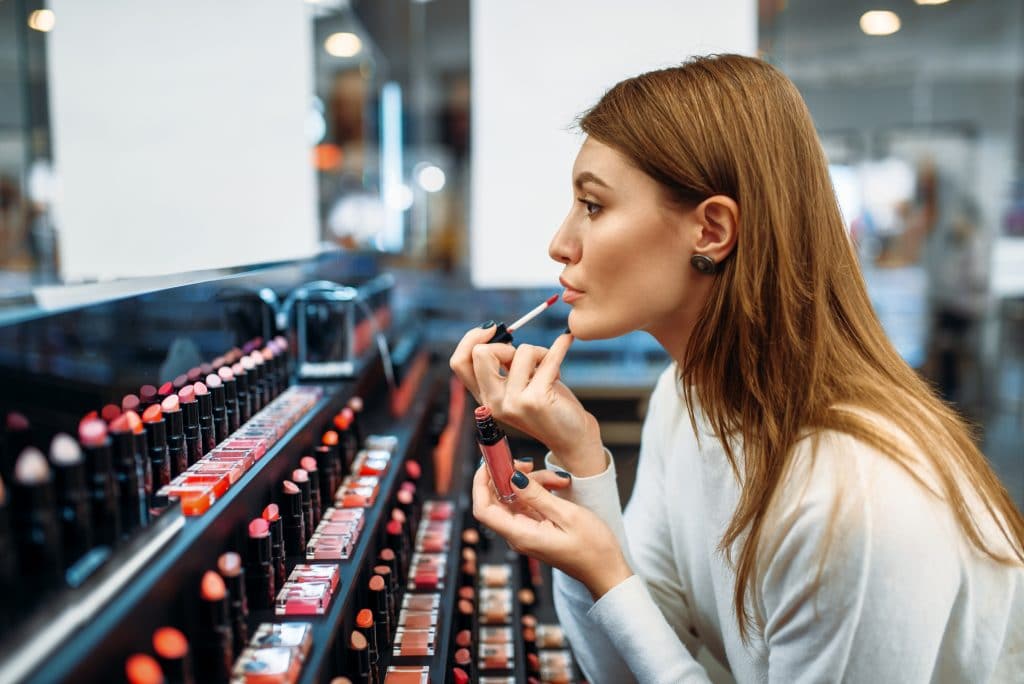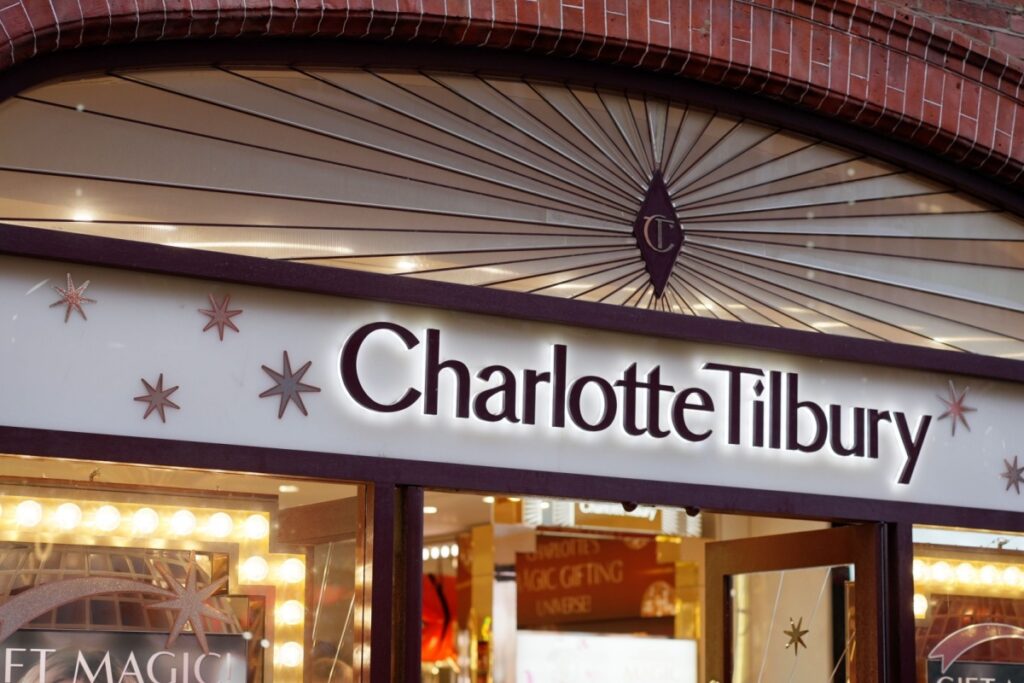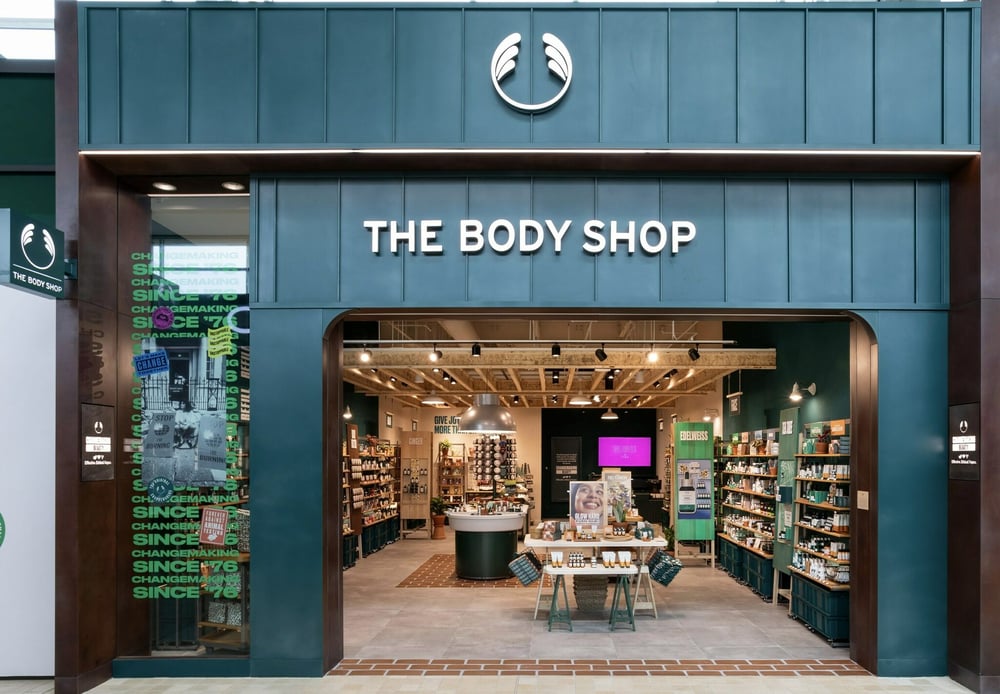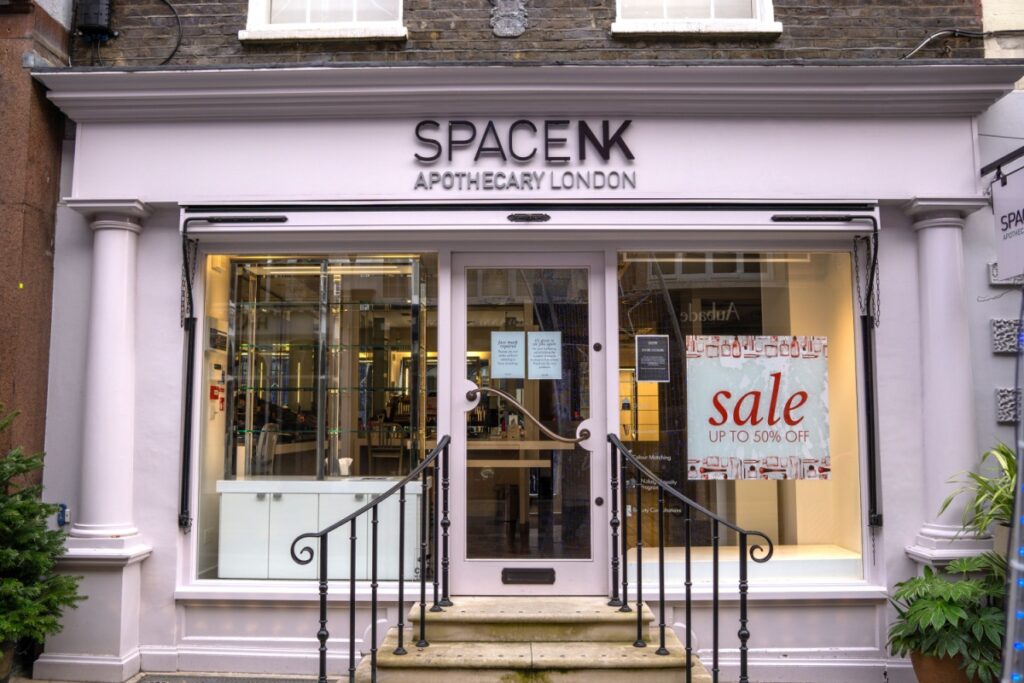Now more than ever, consumers are increasingly paying attention to their skin, hair and body. Thanks to Instagram influencers and YouTube vloggers, the UK’s health and beauty sector is bustling.
Health and beauty is now the retail industry’s fastest growing sector, and is forecast to grow by 16.5 per cent until 2023, according to market research firm GlobalData.
Meanwhile, data collector Statista found that the market value for beauty and personal care reached around £14.7 billion as of 2019, and is expected to grow by over £15 billion in 2020.
“The beauty segment is a growing and profitable part of the retail sector”
However, traditional market leaders in health and beauty, such as Boots or Superdrug, are losing market share as discounters, department stores, general merchandisers and clothing retailers all focus on growing their health and beauty sales, GlobalData found.
This raises questions as to whether health and beauty retailers are making enough effort to capitalise from the growth of the beauty sector, and whether more retailers should release own-brand make-up collections.
“The beauty segment is a growing and profitable part of the retail sector,” said Duncan Reed, partner at law firm TLT.
“Retailers who invest in and promote their own beauty lines on top of selling third party brands can take a greater share of the market.
“Promoting an own brand can sometimes mean involving a high profile celebrity to face the campaign.”
In March of this year, value fashion retailer Matalan dabbled in the cosmetics industry when it launched an own-brand 15-piece make-up collection called the Beauty Collective.
Meanwhile, another value retailer which experimented with make-up is Primark. The company has released many different ranges, including Disney-themed collections, to showcase its popularity.
It can be argued that Primark’s move into cosmetics shows that discount make-up ranges are still proving popular among customers – which highlights why mid-market retailers such as Boots are losing share.
Moreover, value retailer Poundland collaborated with TV personality Jess Wright back in April, which saw fake eyelashes and tanning lotion being sold for £1.
“Beauty has always been a strong sector for retail”
Caitlin Evans, a planning director at customer agency LIDA, told Retail Gazette that despite budget cosmetics popularising, Boots and Superdrug still have an opportunity to grow and become a customer’s only beauty destination as they “have lots of strengths”.
Harry Rosenbaum, an innovation consultant, at multinational corporation Capgemini Invent, said Boots and Superdrug needed to tap into the unique assets of their business and brand – which is ease of accessibility.
“What positions these brands to deliver something in the beauty space that none of their competitors can? There could be a play based on their location quantity – in a pinch, a person could pop into a Boots or Superdrug and take care of any beauty needs way more easily than other retailers.”
According to Evans, the two retail giants can use customer data to “own and drive inside-to-outside beauty programmes that consider everything from nutrition supplements through to toiletries that suit particular skin types and make up for individual colouring, style preferences and lifestyles”.
“They are brand neutral, with rich customer data and massive product ranges,” she added.
Bella Middleton, the founder of sustainable home, garment and skincare retailer Norfolk Natural Living, agreed.
She added that retailers who specialise in selling health and beauty products should give their customers a reason to come back.
“Beauty has always been a strong sector for retail. From a retailer’s perspective, it is a wonderful source of recurring revenue,” she said.
“As an individual, once you find your brand, you have a strong incentive to keep buying it.
“If, as a retailer, you are able to create a brand strong enough to resonate with your customers, you provide a fantastic reason for them to keep returning.”
Middleton also noted that retailers now rely heavily on exclusivity, especially in the age of social media.
“When a high street store launches their own brand of anything, they are competing with an entire industry full of established and growing brands with a strong organic connection to their customers,” she said.
“Of course, widely available brands can sit nicely alongside exclusive marques. It is a compromise with fine margins.”
She added that authenticity comes with a lot of risk: “One cut corner can destroy the credibility of any sustainable brand.
“Beauty brands are diversifying for all skin-types, all genders and all ages”
“So yes, beauty products are a fantastic and potentially un-maximised opportunity for the high street.
“Even more so when combined with genuine eco-credentials. But retailers beware; authenticity will make or break your growth now more than ever.”
Meanwhile, Emma Chiu, the creative innovation director at data firm JWT Intelligence, tsaid the beauty sector in particular, no longer revolves only around beauty.
“Beauty is a huge sector in retail, one that is evolving and expanding,” she told Retail Gazette.
“Beauty brands are diversifying for all skin-types, all genders and all ages.
“Some beauty products are even positioning itself as promoting health and wellbeing.”
As the sector expands, customers, especially the millennial generation search for brands which offer a sustainable alternative.
In recent months, many retailers – particularly grocers – have paid close attention to reducing waste and replacing plastic with eco-friendly alternatives, which has resulted in customers seeking sustainable options in every sector they shop in.
This inevitably places health and beauty retailers in a compelled position.
Chiu notes that “the current private label skincare and make-up collections released have been perfect for millennials who are less susceptible to traditional branding and are opting for affordable, efficient and ethical brands”.
She added that 87 per cent of UK consumers said they would prefer to buy from companies and brands that demonstrate a commitment to sustainability, according to a study undertaken by research firm Sonar.
Middleton believes sustainability is “an inviting area for retailers to explore”.
“Not only is it the right thing to do from an environmental perspective, sustainability commands a premium,” she said.
Although sustainability hasn’t fully developed in the beauty sector, Harry Rosenbaum, an innovation consultant at tech consultancy Capgemini Invent, believes “the day will come for beauty as well”.
“It’s actually all attached to the same thing,” he said.
“The brands consumers select are reflective of their values – fashion has had it’s day in terms of a reckoning around sustainability. it’s still playing out, but there has been visible backlash against fast fashion.
“As people are conscientious of the impact of their consumption, and the imperative for sustainable action amplifies, it will hopefully accelerate behaviour change in other categories.
“Beauty isn’t immune. It must be as conscientious as its consumer is going to be.”
“The use of plastic packaging has become so firmly integrated into the modern supply chain within the beauty sector”
Sophie Light-Wilkinson, the vice president of marketing EMEA at digital marketing company Bazaarvoice, said sustainability has fully shifted into all retail sectors because the price of removing plastic packaging from goods is high.
“The use of plastic packaging has become so firmly integrated into the modern supply chain within the beauty sector that moving to more sustainable and recyclable options comes as a cost,” she told Retail Gazette.
The health and beauty sector may be outperforming other sectors by being the fastest growing, but in terms of sustainability, it still has a long way to go.
The sector feeds a high-demand society, fuelled by beauty bloggers and Instagram influencers. Where health and beauty is situated in a few years time remains uncertain.
Click here to sign up to Retail Gazette’s free daily email newsletter


















